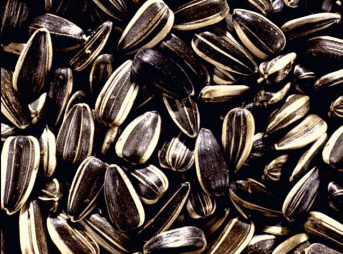|
The world population has topped 6 billion people
and is predicted to double in the next 50 years. Ensuring an adequate food
supply for this booming population is going to be a major challenge in the years
to come. GM foods promise to meet this need in a number of ways:
|
|
|
|
Crop
losses from insect pests can be staggering, resulting in devastating financial
loss for farmers and starvation in developing countries. Farmers typically use
many tons of chemical pesticides annually. Consumers do not wish to eat food
that has been treated with pesticides because of potential health hazards, and
run-off of agricultural wastes from excessive use of pesticides and fertilizers
can poison the water supply and cause harm to the environment. Growing GM foods
such as B.t. corn can help eliminate the application of chemical pesticides and
reduce the cost of bringing a crop to market .
 |
|
|
|
For some
crops, it is not cost-effective to remove weeds by physical means such as
tilling, so farmers will often spray large quantities of different herbicides
(weed-killer) to destroy weeds, a time-consuming and expensive process, that
requires care so that the herbicide doesn't harm the crop plant or the
environment. Crop plants genetically-engineered to be resistant to one very
powerful herbicide could help prevent environmental damage by reducing the
amount of herbicides needed. For example, Monsanto has created a strain of
soybeans genetically modified to be not affected by their herbicide product
Roundup ® . A farmer grows these soybeans which then only require one
application of weed-killer instead of multiple applications, reducing production
cost and limiting the dangers of agricultural waste run-off.
|
|
|
|
There are many viruses,
fungi and bacteria that cause plant diseases. Plant biologists are working to
create plants with genetically-engineered resistance to these diseases. |
|
|
|
|
|
Unexpected frost can destroy sensitive seedlings. An antifreeze gene from cold
water fish has been introduced into plants such as tobacco and potato. With this
antifreeze gene, these plants are able to tolerate cold temperatures that
normally would kill unmodified seedlings.
· Drought
tolerance/salinity tolerance:
As the
world population grows and more land is utilized for housing instead of food
production, farmers will need to grow crops in locations previously unsuited for
plant cultivation. Creating plants that can withstand long periods of drought or
high salt content in soil and groundwater will help people to grow crops in
formerly inhospitable places. |
| |
|
|
|
Malnutrition is common in African countries which face hunger and poverty where
impoverished peoples rely on a single crop such as rice for the main staple of
their diet. However, rice does not contain adequate amounts of all necessary
nutrients to prevent malnutrition. If rice could be genetically engineered to
contain additional vitamins and minerals, nutrient deficiencies could be
alleviated. For example, blindness due to vitamin A deficiency is a common
problem in third world countries. Researchers at the Swiss Federal Institute of
Technology Institute for Plant Sciences have created a strain of "golden" rice
containing an unusually high content of beta-carotene (vitamin A). Since this
rice was funded by the Rockefeller Foundation, a non-profit organization, the
Institute hopes to offer the golden rice seed free to any third world country
that requests it. Plans were underway to develop a golden rice that also has
increased iron content. However, the grant that funded the creation of these two
rice strains was not renewed, perhaps because of the vigorous anti-GM food
protesting in Europe, and so this nutritionally-enhanced
rice may not come to market at all. |
| |
|
|
| Medicines and
vaccines often are costly to produce and sometimes require special storage
conditions not readily available in third world countries. Researchers are
working to develop edible vaccines in tomatoes and potatoes. These vaccines will
be much easier to ship, store and administer than traditional inject able
vaccines. |
|
|
|
|
| Not all GM plants are
grown as crops. Soil and groundwater pollution continues to be a problem in all
parts of the world. Plants such as poplar trees have been genetically engineered
to clean up heavy metal pollution from contaminated soil. |
| |
| |
| |
| |
